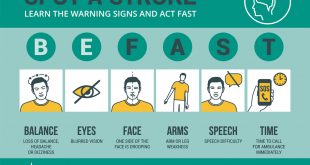By Dr. Noël Crosby, Au.D.


High blood sugar damages various organs within the body, but also has a severely adverse effect on nerves. This nerve damage happens when the blood supply is limited. The small blood vessels, which supply blood and nutrients to the nerves becomes impaired. When the nerves are no longer fed nutrients, they either die, or their signals to the brain are ineffective. Diabetes can cause nerve damage to all areas of the body including the inner ears.
When the inner ear nerves are damaged, hearing loss takes place. Managing your blood sugar is a critical part of your diabetic care. It can also help protect your hearing.
According to the CDC:
Signs of Hearing Loss
Hearing loss can happen slowly, so it can be hard to notice. Often, friends and family members will notice your hearing loss before you do.1
Signs of hearing loss include:1
• Often asking others to repeat themselves.
• Trouble following conversations with more than one person.
• Thinking that others are mumbling.
• Problems hearing in noisy places, such as busy restaurants.
• Trouble hearing the voices of small children and others with quiet voices.
• Turning up the TV or radio volume too loud for others who are nearby.
How To Protect Your Ears1
You can’t reverse hearing loss, but you can follow these tips to help protect your ears:
• Keep your blood sugar as close to your target
levels as possible.
• Get your hearing checked every year.
• Avoid other causes of hearing loss, including loud noises.
• Ask your doctor whether any medicines you’re taking can damage your hearing and what other options are available.
If you have diabetes, you should have a hearing test every year, as the level of your hearing can fluctuate or progress quickly. If you think you have hearing loss schedule a hearing test.
Why you should see an Audiologist
If you are experiencing hearing loss, it’s important to seek a qualified audiologist, because they are trained to get you the best outcome and resolution for your specific issue. If you’ve noticed that it’s difficult to hear conversations in a noisy atmosphere, or you feel the need to adjust your television volume much higher than before, it’s vital for you to have your hearing checked.
Perhaps you or your loved one keeps asking for people to repeat themselves, or you can’t quite pick up where sounds are coming from; if this is the case, don’t wait until your hearing loss gets any worse, schedule your appointment as soon as you possibly can.
ABOUT ADVANCED HEARING SOLUTIONS — Using the latest and most sophisticated technology, we determine if you have hearing loss–and, if you do, we determine the degree and type of hearing loss. If your hearing loss requires medical or surgical intervention, we can refer you to a physician (otologist or neurologist) for appropriate treatment. If your type of hearing loss can best be treated with the use of hearing aids and/or other assistive listening devices (which is true in the great majority of cases), we can select any of a wide range of hearing devices and custom fit them to your ear, programmed to augment your hearing at those frequency levels where your hearing loss is greatest.
Source:
CDC Centers for Disease Control and Prevention, Diabetes and Hearing Loss, July 22.2021, https://www.cdc.gov/diabetes/
managing/diabetes-hearing-loss.html
Call Advanced Hearing Solutions today at (941) 474-8393.
 Southwest Florida's Health and Wellness Magazine Health and Wellness Articles
Southwest Florida's Health and Wellness Magazine Health and Wellness Articles

